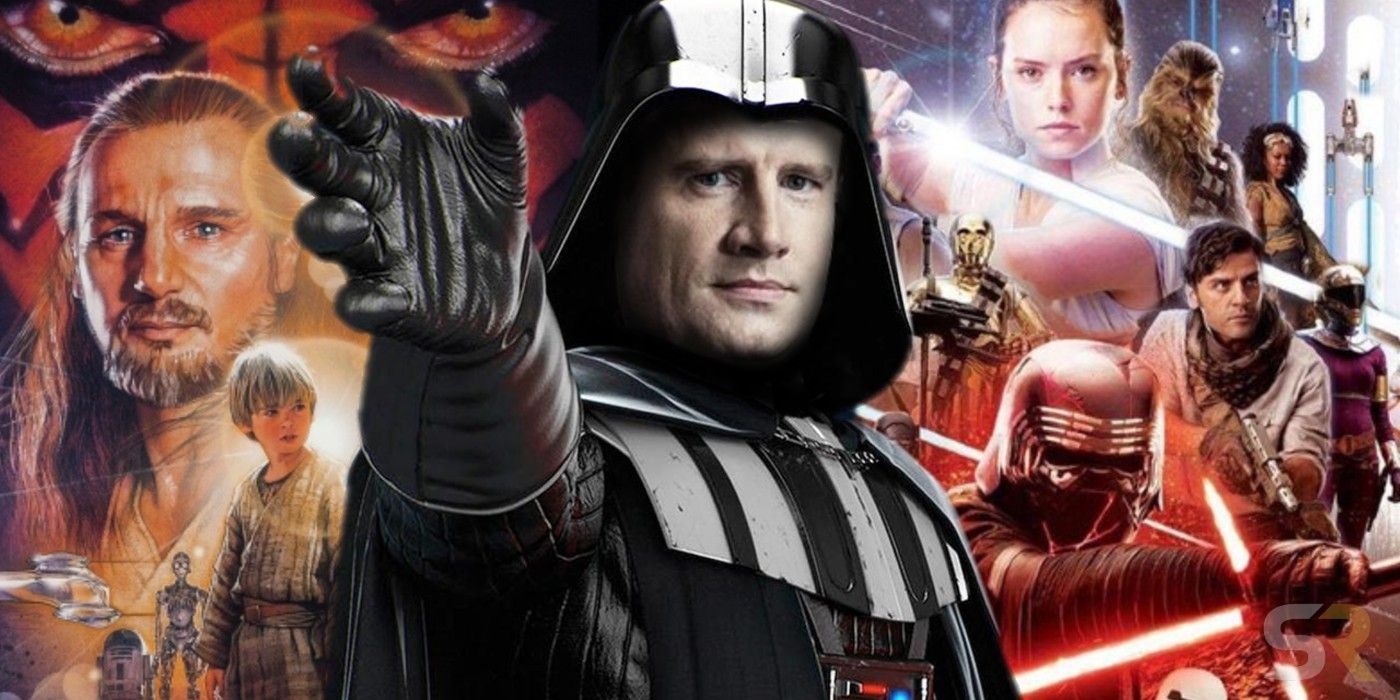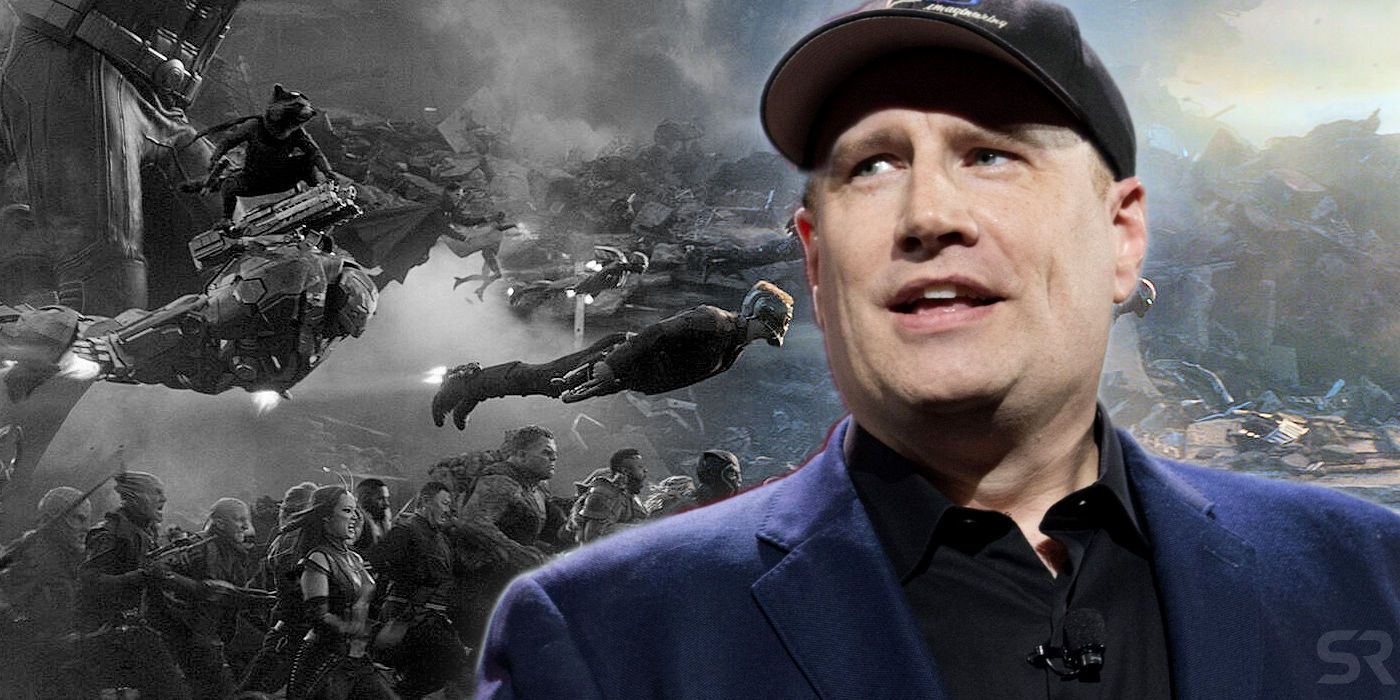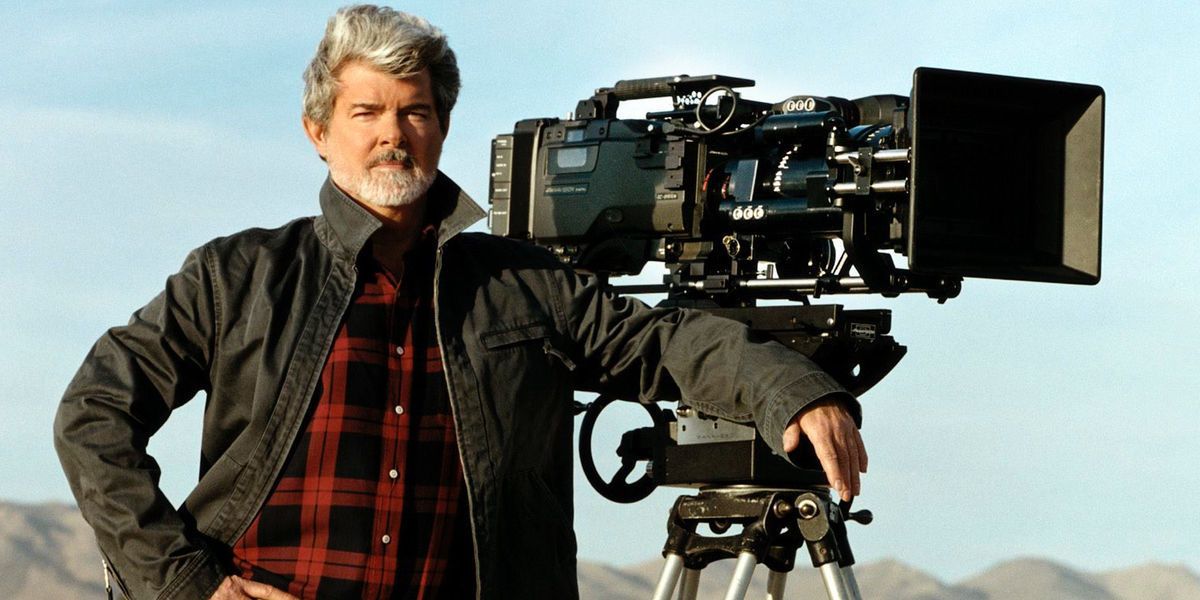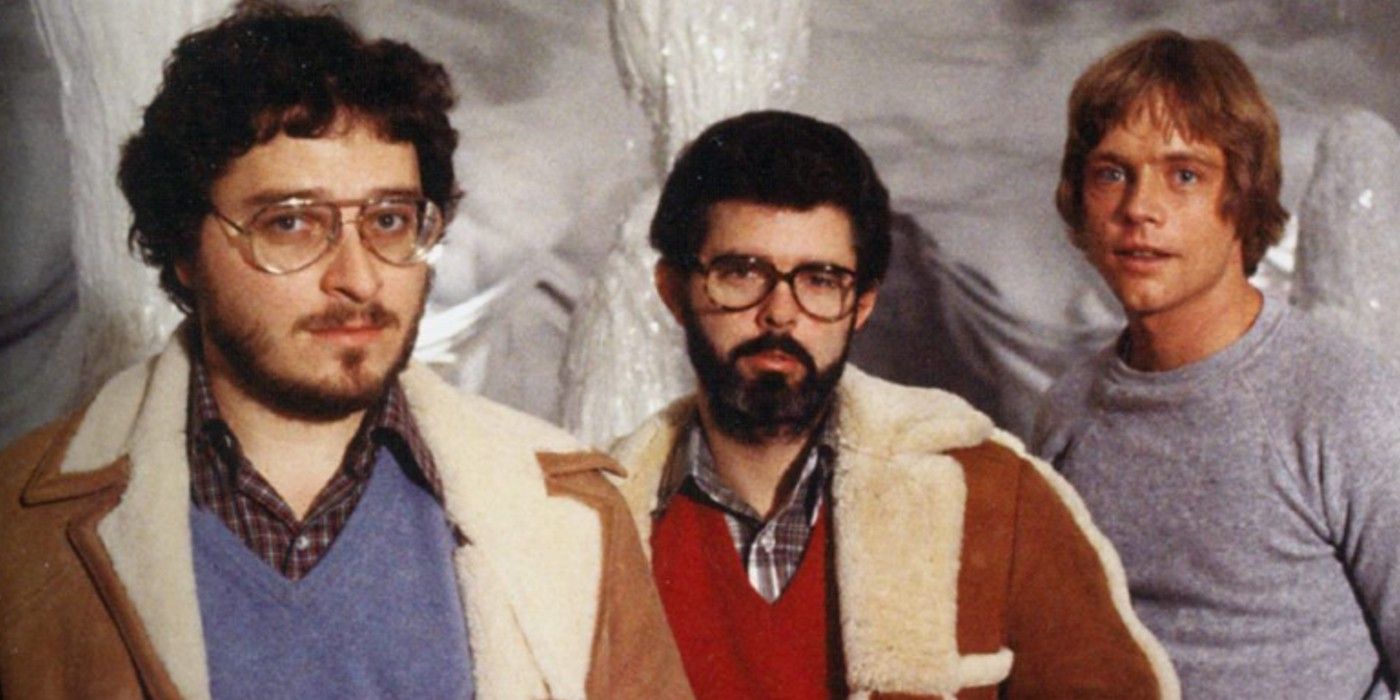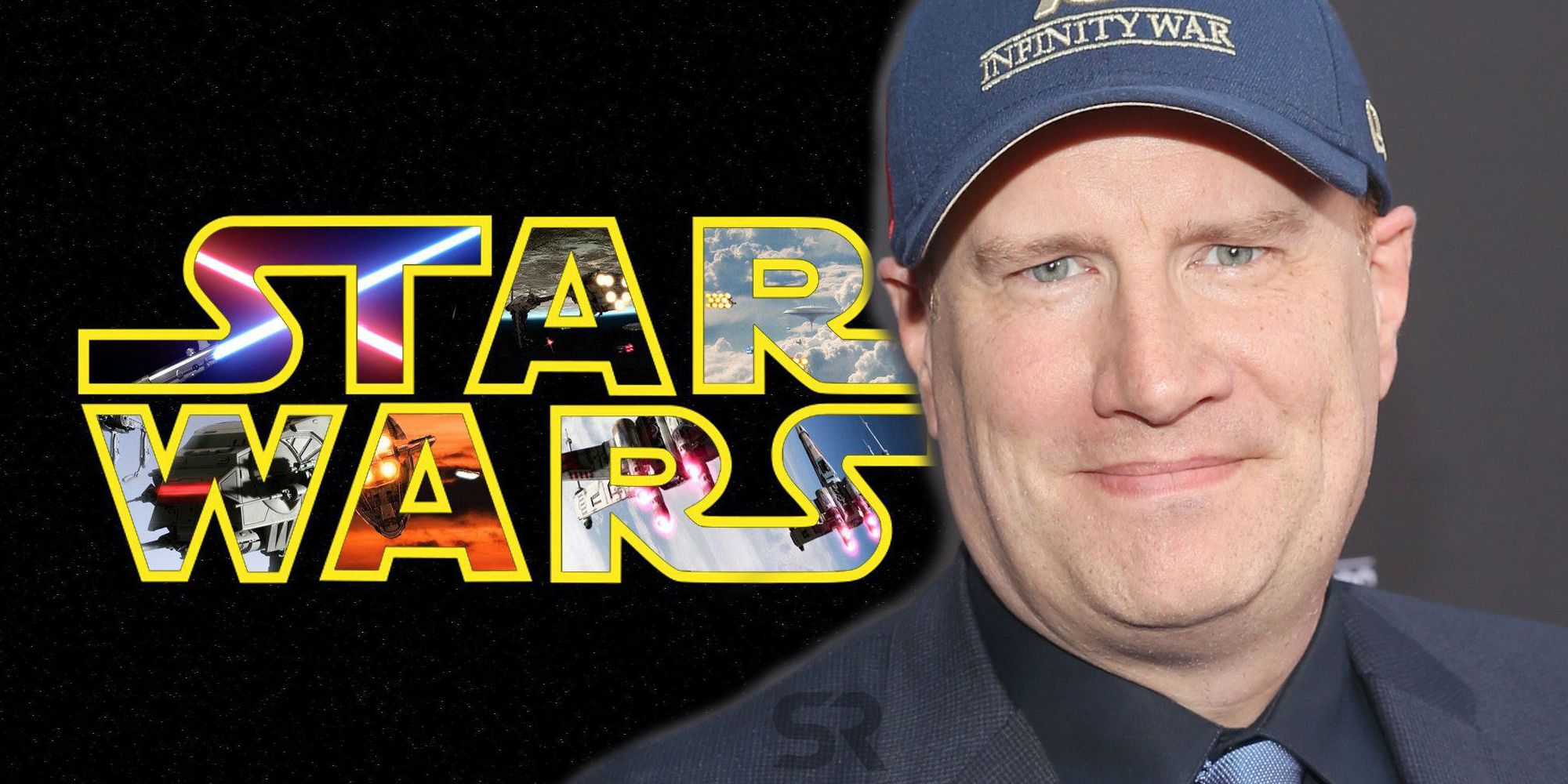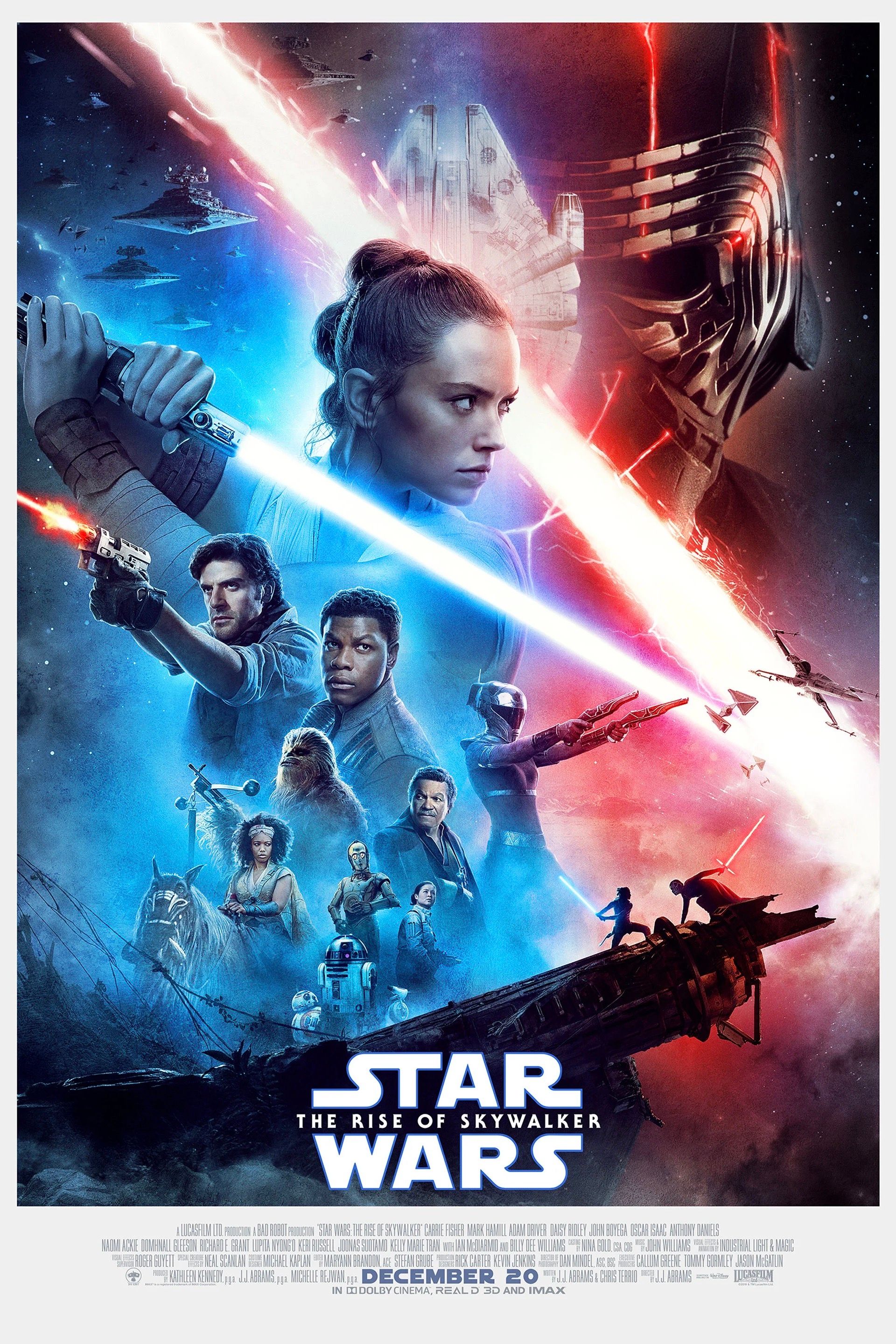Star Wars would be worse off if Kevin Feige took over. Earlier this week, film fans were surprised to hear the news Feige was developing a new Star Wars movie. Lucasfilm already had two separate Star Wars trilogies (from Rian Johnson and David Benioff & D.B. Weiss) in the pipeline for after The Rise of Skywalker, and now there's another project in the works. It makes the future of the Star Wars franchise even cloudier, since all that's been confirmed is there will be three new movies coming out in December 2022, 2024, and 2026. The first Benioff & Weiss film is thought to be the 2022 film, but a lot can change and Disney hasn't made any official announcement on that matter.
Feige is, of course, keeping himself very busy with the next era of the Marvel Cinematic Universe. Phase 4 consists of six feature films (including Spider-Man: Homecoming 3 with Sony) and a handful of TV shows for the Disney+ streaming service. So, it came as a bit of a shock to learn Feige has room on his schedule for a Star Wars movie too. This could just be a one-and-done deal, but some are looking at this as the first steps towards giving Feige a major role in Lucasfilm. After seeing what he did with Marvel, Disney would probably like to see him work magic on Star Wars, which is coming off a rough 2018 (Last Jedi backlash, Solo bombing). But if Feige were to take over Star Wars, there's a chance the franchise would be worse off.
Why Kevin Feige Is A Successful Filmmaker
Firstly, there's no denying Kevin Feige's success and what he's accomplished as president of Marvel Studios. Taking a collection of B and C-level superheroes, he helped build what's become the most popular franchise in the film industry. The MCU was something that had never been attempted before, was deemed overly-ambitious in the Phase 1 days, and now has grossed $22.5 billion worldwide collectively. Avengers: Endgame is arguably the defining cinematic event of a generation, besting Avatar's all-time mark as the highest-grossing film. Feige's pushed a lot of the right buttons, so it makes sense why Disney would want to give him a shot at Star Wars.
All that said, there's a flip side to this. Yes, Marvel's ripped off an unprecedented string of Certified Fresh box office hits, but they aren't above criticism. The "Marvel formula" is now well-established, and many have pointed out how several of their films feel the same and even cover similar beats. What this does is give the impression the MCU is a "one-size-fits-all" operation, crafting a bunch of good (if sometimes unremarkable) movies with an analogous style and tone. More recently, there have been examples like Ryan Coogler's Black Panther or Taika Waititi's Thor: Ragnarok where there was more of a balance between a filmmaker's individual voice and the MCU formula, though those are still few and far between. It's hard to argue with the results, but at times this approach prevents the films from reaching their full potential (we will never see Edgar Wright's Ant-Man). And that flies in the face of the spirit of Star Wars.
Kevin Feige and George Lucas Are Polar Opposite Filmmakers
There was never anything "one-size-fits-all" about Star Wars, especially when George Lucas was involved. After he couldn't get the Flash Gordon film rights, Lucas made an original space opera with his own characters, worlds, and mythology that completely changed the movie business in more ways than one. While the first Star Wars was inspired by Joseph Campbell and the hero's journey, Lucas never confined himself to a singular, repeatable formula. All of his Star Wars films were groundbreaking and challenged industry conventions and processes. On the original trilogy, Lucas and his team pulled off revolutionary visual effects that had never been attempted before, creating all-new techniques. And they did this on shockingly cheap budgets. Even when adjusted for inflation, the costs of the first three movies aren't very expensive. The only one that approaches the ballpark of modern tentpoles is Return of the Jedi, and even that one is cheaper than most of today's blockbusters.
Even on the maligned prequels, Lucas was pushing the boundaries of moviemaking technology. Jar Jar walked so Gollum could run. Attack of the Clones was the first theatrical motion picture shot on digital. The storytelling merits of the prequels have been debated to death, but in terms of technical filmmaking, they're highly important works for the industry. Once again, Lucas was a pioneer and introduced concepts that opened new doors and opportunities. And, though his execution was suspect in some places, Lucas does deserve credit for veering in different narrative directions on the prequels (subverting fans' expectations in the process). The core arc of the prequel trilogy, following an idealistic young man's corruption set against the backdrop of political intrigue, on-paper is a much more interesting narrative than a majority of Marvel's movies. In some regards, the stakes feel higher and the three films do not follow a copy-and-paste formula. This is why Lucas was so disappointed in The Force Awakens when he first saw it; in his eyes, the movie that brought Star Wars back had nothing new to bring to the table.
Star Wars Is Great Because of George Lucas, Not The Brand
Lucas' continued insistence on innovation and moving forward is what made Star Wars so great. Through his technical and storytelling advancements, he was able to instill a sense of a sense of awe and wonder in audiences and captivate generations. With each movie, Lucas and his crew swung for the fences, meaning viewers were never sure what to expect when they sat down to watch a Star Wars movie for the first time - only that it'd probably be unlike anything they've seen before (for better or worse). There's a reason why J.J. Abrams met with Lucas before writing the Rise of Skywalker script and Rian Johnson looked at Lucas' methods when making The Last Jedi. As polarizing a figure he is in the Star Wars community, Johnson understood the need to push the envelope and step outside the bounds - which is an approach he'll follow on his new trilogy.
Feige gambled when he introduced a shared movie universe to Hollywood, building it on the foundation of second-tier characters. That in it of itself is a risk, but there's an inherent safeness to most Marvel movies as they've refined their formula over the past decade. Even now, 23 films in when the MCU is an ironclad box office lock no matter what they make, there can be a hesitancy at times to stray away from the Marvel formula. Again, looking at the results, it's easy to see why; if it ain't broke, don't fix it. The counterpoint to that is since the MCU is now a guaranteed commercial draw whether Iron Man or Ant-Man is on the poster, why not go outside the comfort zone and see what happens? Why does Captain Marvel feel like a leftover from Phase 1, when it released 11 years after Iron Man? Why followup Infinity War with the run-of-the-mill Ant-Man and the Wasp? For all their revolutionizing of franchise building (everyone else tried to launch their own shared universe in the wake of The Avengers), Marvel doesn't always apply the Rian Johnson method of thinking outside the bounds. It's worth mentioning Infinity War's cliffhanger killed off characters who all had sequels in development.
Kevin Feige Would Make A Successful (But Inferior) Franchise With The Star Wars Brand
Lucasfilm's director problems are legendary and made plenty of headlines over the past few years, but Marvel doesn't have a perfect track record there either. As impressive it is Taika Waititi was handed the keys to the Thor franchise, there's also the matter of Edgar Wright leaving Ant-Man, Patty Jenkins departing Thor: The Dark World, and Ava DuVernay turning down Black Panther. Pesky "creative differences" were cited as to why things didn't work out, with the departing directors essentially saying some variation of "I wanted to make a [director's name] movie; they wanted to make a Marvel movie." Of those three examples, Jenkins is perhaps the most damning, since she went on to have record-breaking success with rival DC. It shows that for all their achievements, there are some cracks in Marvel's way of conducting business.
As Phil Lord and Chris Miller will tell you, Star Wars directors need to play ball too, but things could be a little more restrictive if Feige, rather than Kathleen Kennedy, was calling the shots. As controversial it is, The Last Jedi harkens back to that old Lucas mentality of challenging the audience and thinking outside boundaries. Not that Feige wouldn't sign off on Johnson's creative choices, but judging by his track record, a film like The Last Jedi seems less likely to happen. Depending on who you ask, that could be a good thing, but that could also hurt Star Wars in the longterm. What The Last Jedi illustrated was that a distinctive voice like Johnson could come in, eschew formula, and even get an all-new trilogy green lit without a story in place (which contrasts Marvel's trademark approach of planning a Phase out years in advance). Feige's handling of Marvel indicates he has a clear idea of what the movie *should* be and sticks to that, finding a director who sees eye-to-eye with that vision. He'd bank more on the Star Wars brand than the template Lucas set. That would still be commercially successful, but could be underwhelming from an artistic perspective.
-
Admittedly, it's still very early in the process. The only thing known about Feige's Star Wars movie is that he has a major actor in mind for a role. He could very well surprise audiences by spearheading something more daring than audiences have come to expect from his work at Marvel. Johnson's job on The Last Jedi influenced the nostalgic J.J. Abrams to be less "safe" on The Rise of Skywalker, so perhaps Feige sees Star Wars as a playground that affords him different opportunities than Marvel. It will be interesting to see how it all plays out, but hopefully if Feige takes on more responsibilities at Lucasfilm, he doesn't transform the studio into Marvel 2.0.

